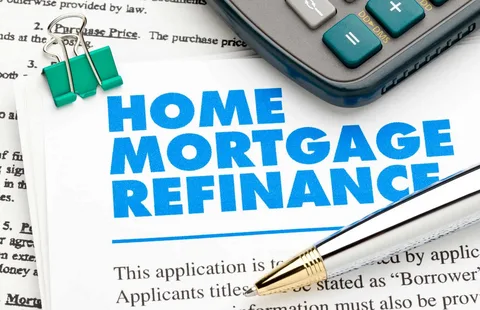
Hidden Costs of Buying a Home is a major milestone and an exciting step in life. However, many first-time homebuyers focus solely on the purchase price of the home, overlooking the hidden costs that come with homeownership. To avoid financial surprises, it’s crucial to understand and budget for these additional expenses. In this guide, we’ll explore the hidden costs of buying a home and what you need to prepare for financially.
1. Closing Costs
When you finalize the purchase of a home, there are several fees collectively known as closing costs. These fees can add up to 2% to 5% of the home’s purchase price. Here’s a breakdown of what’s typically included in closing costs:
- Loan Origination Fees: These are fees charged by the lender for processing your mortgage application.
- Appraisal Fees: An appraisal is required to determine the market value of the home. This ensures the lender isn’t lending more than the property is worth.
- Home Inspection Fees: A home inspection is necessary to check for any structural or mechanical issues with the property.
- Title Insurance and Search Fees: Title insurance protects you and the lender from any legal disputes over property ownership. A title search ensures there are no outstanding claims or liens on the property.
- Attorney Fees: In some states, an attorney is required to handle the closing process.
2. Property Taxes
Property taxes are an ongoing expense that many first-time buyers overlook. The amount you’ll pay in property taxes varies depending on your location and the value of your home. It’s important to research property tax rates in your area before purchasing a home, as these can significantly impact your monthly budget. Some lenders may require you to set up an escrow account to cover property taxes, meaning you’ll pay a portion of your taxes each month as part of your mortgage payment.
3. Homeowners Insurance
Homeowners insurance is essential for protecting your investment, and most lenders require it before approving a mortgage. This insurance covers damage to your home from events like fires, storms, and theft. The cost of homeowners insurance varies based on factors like the size and location of your home, as well as the coverage options you choose. Be sure to shop around and compare quotes to find the best rate.
4. Private Mortgage Insurance (PMI)
If you make a down payment of less than 20% of the home’s purchase price, your lender will likely require you to pay for private mortgage insurance (PMI). PMI protects the lender in case you default on the loan. This additional cost is usually added to your monthly mortgage payment and can range from 0.3% to 1.5% of the original loan amount per year. PMI can be canceled once you’ve built up enough equity in your home, typically when your loan-to-value ratio drops below 80%.
5. Maintenance and Repairs
Owning a home means you’re responsible for all maintenance and repairs, which can be costly. Unlike renting, where a landlord covers repairs, homeowners must budget for routine maintenance and unexpected fixes. It’s wise to set aside 1% to 2% of your home’s value each year for maintenance and repairs. This could include things like:
- Roof repairs
- HVAC system maintenance
- Plumbing issues
- Landscaping and yard care
- Painting and minor renovations
6. Utilities and Monthly Bills
When you move into a new home, you’ll need to account for the cost of utilities, which may be higher than what you’re used to paying as a renter. Utility bills can include:
- Electricity
- Gas
- Water and sewer
- Trash collection
- Internet and cable
Make sure to ask the previous homeowner or your real estate agent for an estimate of these costs, so you can budget accordingly.
7. Homeowners Association (HOA) Fees
If you’re buying a home in a community with a homeowners association (HOA), you’ll need to pay monthly or annual fees. HOA fees cover the cost of maintaining common areas, amenities, and sometimes even certain utilities. The amount of these fees can vary widely depending on the neighborhood and the services provided, so it’s important to factor this into your budget before purchasing a home.
8. Moving Costs
Moving into a new home comes with its own set of expenses. Whether you’re hiring professional movers or renting a truck to do it yourself, moving costs can add up. Don’t forget to budget for:
- Moving company fees or truck rental
- Packing supplies
- Potential storage fees
- Utility connection fees
9. Furnishing Your Home
If you’re moving into a larger space or upgrading from an apartment, you may need to buy new furniture and appliances. Furnishing a home can be expensive, especially if you want to buy quality items that will last. Consider starting with the essentials and gradually adding pieces as your budget allows.
Conclusion Hidden Costs of Buying a Home
Buying a home is a significant financial commitment that goes beyond the purchase price. By understanding and budgeting for these hidden costs, you can avoid unexpected financial strain and enjoy the process of becoming a homeowner. Planning ahead for closing costs, property taxes, insurance, maintenance, and other expenses will help ensure that your home purchase is a sound and rewarding investment.






